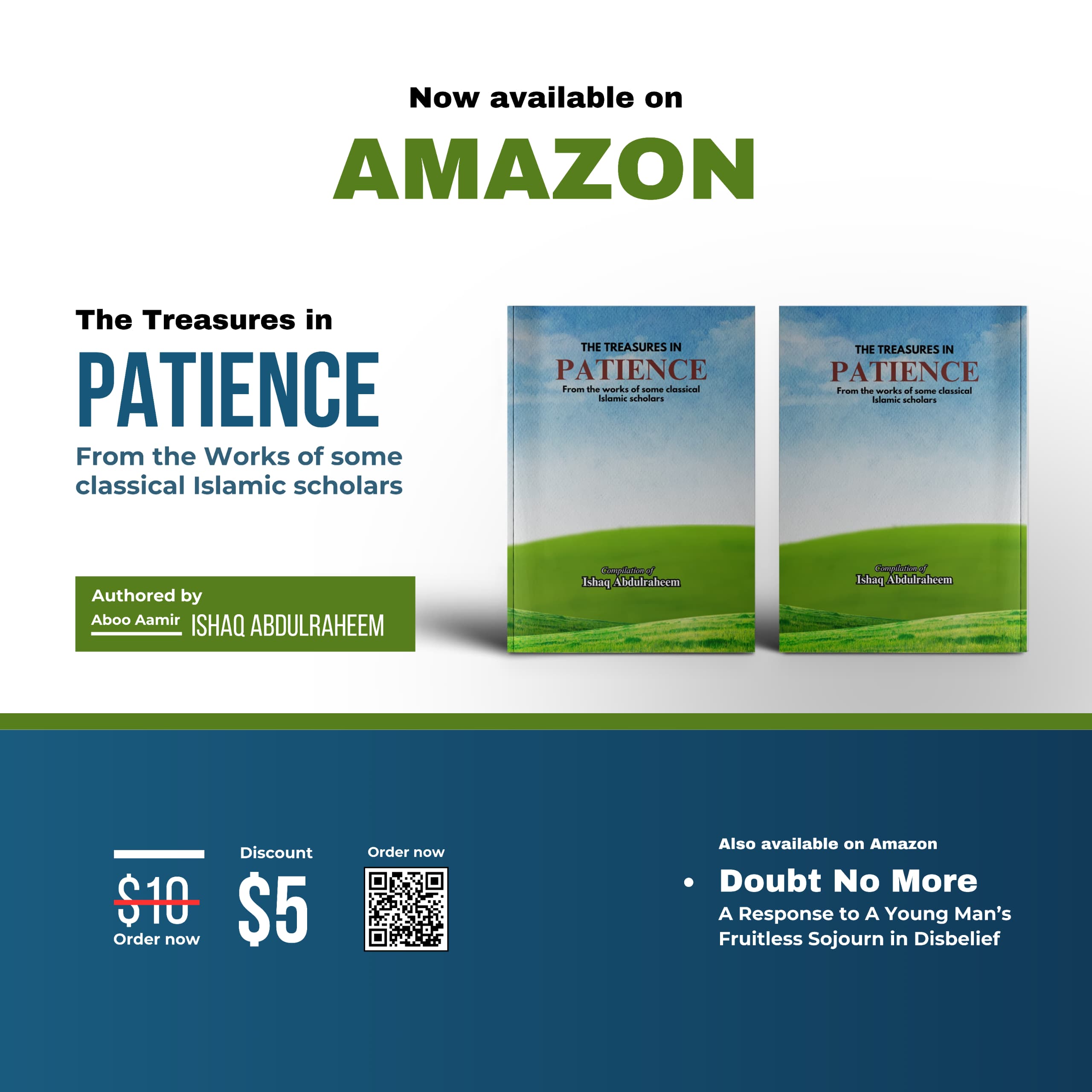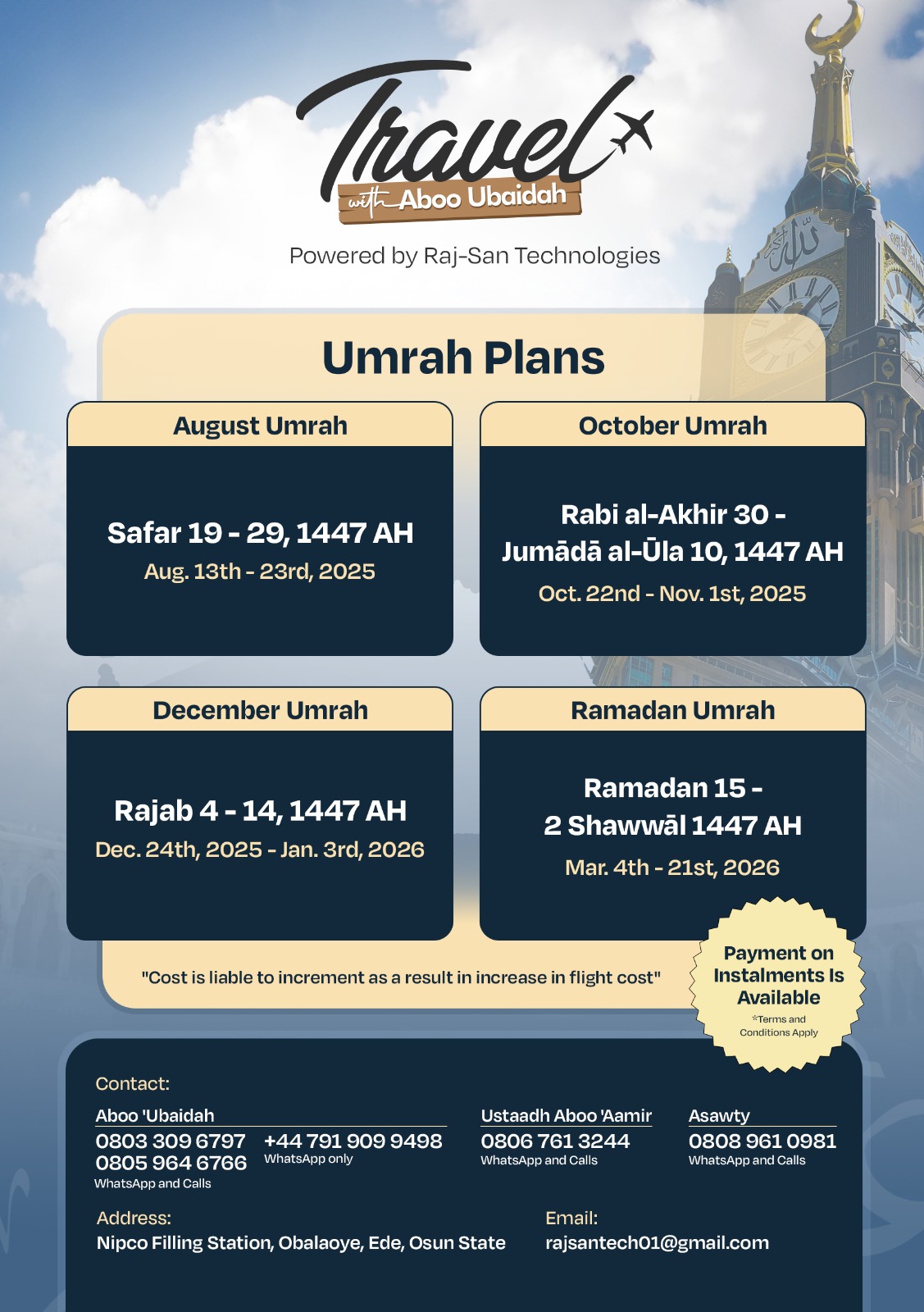Also Said Al-Imaam Yoosuf bn Abdillaah bn Muhammad bn ‘AbdilBarr An-Namree Al-Qur’tubee Al-Maalikee, Aboo Umar, Haafidh Al-Maghrib; in his book: ‘Jaamiu Bayaanil’Ilm Wa Fadlu-hu [A Comprehensive Explanation of Knowledge and Its Excellence], Chapter 53: Student of Knowldge Quest for Wealth and What Suffices Him in That.
Sufyaan Ath-Thauree (RahimahuLlaah) said: ‘The scholar is the physician of this Ummah while wealth is its ailment, thus when the physician drags the ailment to himself how will he cure others?’
The blameworthy wealth however is the one sought illicitly just as the Messenger of Allaah (sallallahualahyiwasallam) said: ‘Deenaar and Dirham did destroy those who came before you.’ He also said: ‘Two hungry wolves sent after a herd of sheep will cause less harm than how a man who loves wealth and fame will be destroyed.’
Umar bn Al-Khattaab (RadiyaLlaahuan’hu) said: ‘Allaah would not open Deenaar and Dirham as well as gold and silver for a people except that they leads to shedding of blood among them so also severance of ties.’
Narrations as above have to do with wealth sought from illegal sources. But if it were from right sources and it is spent in the cause of Allaah, such wealth is praiseworthy so also the person who has sought it. There is no dispute over that among the scholars. Allaah indeed praises those who spend in His cause in more than a Verse of the Qur’aan. For example He the Mighty said:
الَّذِينَ يُنْفِقُونَ أَمْوَالَهُمْ فِي سَبِيلِ اللَّهِ ثُمَّ لا يُتْبِعُونَ مَا أَنْفَقُوا مَنًّا وَلا أَذًى لَهُمْ أَجْرُهُمْ عِنْدَ رَبِّهِمْ وَلا خَوْفٌ عَلَيْهِمْ وَلا هُمْ يَحْزَنُونَ
Those who spend their wealth in the Cause of Allâh, and do not follow up their gifts with reminders of their generosity or with injury, their reward is with their Lord. On them shall be no fear, nor shall they grieve. [Al-Baqarah: 262].
الَّذِينَ يُنْفِقُونَ أَمْوَالَهُمْ بِاللَّيْلِ وَالنَّهَارِ سِرًّا وَعَلانِيَةً فَلَهُمْ أَجْرُهُمْ عِنْدَ رَبِّهِمْ وَلا خَوْفٌ عَلَيْهِمْ وَلا هُمْ يَحْزَنُون
Those who spend their wealth (in Allâh's Cause) by night and day, in secret and in public, they shall have their reward with their Lord. On them shall be no fear, nor shall they grieve.
There are also authentic reports from the saying the same thing while there are many comments about that from the Companions, the Taabi’oon and the Fuqaha of the Muslims.
For instance the Messenger of Allaah (sallallahualahyiwasallam) said:
اليد العليا خير من اليد السفلى واليد العليا هي المنفقة واليد السفلى هي السائلة
‘The upper hand is better than the lower hand; the upper hand gives while the lower hand takes.’
[Recorded by Al-Bukhaaree, Muslim and others].
The Messenger of Allaah (sallallahualahyiwasallam) said to Sa’d bn Abee Waqqaas(RadiyaLlaahuan’hu):
إنك أن تذر ورثتك أغنياء خير من أن تذرهم عالة يتكففون الناس وإنك لن تنفق نفقة تبتغي بها وجه الله إلا أجرت بها ‘
That you should leave your heirs rich is better than leaving them poor begging people (for sustenance). You will not spend anything (for your family) except that you will be rewarded thereof.’
[Recorded by Al-Bukhaaree, Muslim and others].
He (sallallahualahyiwasallam) also told Amr bn Al-‘Aas (RadiyaLlaahuan’hu): ‘Do you wish that I send you with an army whereby Allaah will grant you booty and bring you back home safely, and make you have from the wealth in the most righteous manner. What a good wealth that shall be for a righteous man!’
[Recorded by Ahmad].
The Messenger of Allaah (sallallahualahyiwasallam) used to store, from what Allaah provided from him from the land of Fadak and others, what will suffice him for a year while he will make the rest for the cause of Allaah. [Recorded by Al-Bukhaaree, Muslim and others].
When ‘AbdurRahmaan bn Auf (RadiyaLlaahuan’hu) divorced a wife of his, he allotted more than eighty thousand (deenar) worth of wealth to her.
Az-Zubayr bn Awwaam (RadiyaLlaahuan’hu)was said to have a thousand slaves who tilled the land for him yet no dirham would enter his house.
When ‘Abdullaah bn Mas’ood (RadiyaLlaahuan’hu)died, he left seventy thousand dirham.
Abu Qilaabah said (RahimahuLlaah): ‘The world will not affect you provided you are thankful to Allaah on its account.’
Ayyoob (RahimahuLlaah) said: Aboo Qilaabah (RahimahuLlaah) used to say to me: ‘O Ayyoob, stick to your stall, indeed being rich is from well-being.’
Aboo Ad-Dardaa (RadiyaLlaahuan’hu)said: ‘From the good understanding of a slave is that he should seek his means of living from a good source.’
He also said: ‘Good living guarantees good Deen; good Deen is from good intellect.’
Umar bn Al-Khattaab (RadiyaLlaahuan’hu) said: ‘O Assembly of Qur’aan memorizers, compete with one another in goodness, and seek from the bounties of Allaah, do not rely upon the people.’
But forsaking halal and shunning the world while one has the ability to hanker after it is better. Ibn Shihaab (RahimahuLlaah) said: ‘Az-Zuhd (abstinence) regarding the world is that you do not make your patience be overpowered by haram, nor allow your sense of thankfulness overpowered by halal.’
Sufyaan Ath-Thauree and Anas bn Maalik (may Allaah be merciful to both) said: ‘Az-Zuhd in life is that one should have short hopes.’
Fudayl bn ‘Iyaad (RahimahuLlaah)was asked about Az-Zuhd, he said: ‘Az-Zuhd is self-contentment, that is where richness lies.’ He was also asked about al-Wara’, he said: ‘Running away from the prohibitions.’
Thus there are many other instances from the Salaf such as the Companions and the Taabi’oon enjoining being contended with one’s allotment, virtue of self-contentment, avoidance of asking people and restraining oneself on what comes one’s way, not desiring plenty wealth that often makes one transgress and dissuade one from the Deen.
The Messenger of Allaah (sallallahualahyiwasallam) said:
إن الله تعالى ليحمي عبده المؤمن من الدنيا و هو يحبه كما تحمون مريضكم الطعام و الشراب تخافون عليه
‘Indeed Allaah shall surround His slave with (wealth of) this world as any of you will surround the person sick under him with food and drinks desired by him but which you fear forhim.’
[Recorded by At-Tirmidhi; authenticated in Saheeh Jaami, 1814].
This is with respect to what Allaah knows about the slave because wealth may be the cause of transgression of a particular person while it is poverty for others.
The Messenger of Allaah (sallallahualahyiwasallam) used to supplicate thus:
اللهم إني أعوذ بك من الجوع فإنه بئس الضجيع وأعوذ بك من الخيانة فإنها بئست البطانة
‘O Allaah, I seek refuge in You from hunger, it is an evil bed-fellow. I seek refuge in You from treachery, it is an evil comrade.’
[Recorded by Aboo Daawud and An-Nasaa’ee. See Saheeh Al-Mishkaat, 3354].
He (sallallahualahyiwasallam) would also supplicate:
اللهم إني أعوذ بك من الفقر والفاقة والقلة والذلة
‘O Allaah, I seek refuge in You from poverty and wretchedness, want and ignominy…’
[Recorded by Aboo Daawud and An-Nasaa’ee].
He was also fond of saying:
اللهم إني أسألك الهدى والتقى والعفاف والغنى
‘O Allaah I ask You for guidance, piety, well-being and richness.’
[Recorded by Muslim and others].
As for the proofs for taking little from the world, and sense of self-contentment therein, and that it is better than hankering after the world and seeking opulence therein, they are as follows:
On the authority of Usaamah bn Zayd, the Messenger of Allaah (sallallahualahyiwasallam) said: ‘I stood by the Door of Al-Jannah, the bulk of the people who entered it were the poor. People of wealth were restrained from entering it except the people of hell; those ones were asked to move to the hell fire. And I stood by the Door of Hellfire, the bulk of those who entered it were women.’ [Recorded by Al-Bukhaaree, Muslim and others].
On the authority of Aboo Hurairah, the Messenger of Allaah (sallallahualahyiwasallam)said:
موضع سوط أحدكم في الجنة خير من الدنيا وما فيها
‘The whip of any of you in the Jannah is better than the world and what it contains.’
[Recorded by At-Tirmidhi and Ahmad; See As-Saheehah: 6426].
Sa’d said, the Messenger of Allaah (sallallahualahyiwasallam)said:
خير الذكر الخفي ، و خير الرزق ما يكفي
‘The best of remembrance is what is hidden while the best of sustenance is what is sufficient.’
[Recorded by Ahmad; Ash-Shaykh Al-Albaanee said it is hasan by the virtue of the many routes the hadith had come; see As-Saheehah 4/450].
Aboo Hurairah said the Messenger of Allaah (sallallahualahyiwasallam) said:
اللهم اجعل رزق آل محمد قوتا
‘O Allaah make the sustenance of the family of Muhammad what will suffice (at least for a day).’
[Recorded by Al-Bukhaaree, Muslim and others].
Khaulah bint Hakeem said the Messenger of Allaah (sallallahualahyiwasallam) said:
إن الدنيا خضرة حلوة ، فمن أخذها بحقها بورك له فيها ، و رب متخوض في مال الله و مال رسوله ( ليس ) له ( إلا ) النار يوم يلقى الله
‘The world is greenish and sweet. Whoever takes it rightfully he will be blessed thereof. How many are those who hanker after the wealth of Allaah and His Messenger’s and will be thrown into the Hellfire.’
[Recorded by Al-Bukhaaree and others].
In Musnad Ahmad and on the authority of Buraydah Al-Aslamee, the Prophet (sallallahualahyiwasallam) said:
ليكف أحدكم من الدنيا خادم ومركب
‘A servant and a ride suffice any of you in this world.’
[Rendered hasan by Ash-Shaykh Al-Albaanee in Saheeh Ibn Majah: 4203].
Aboo Al-Itaahiyyah (RahimahuLlaah) composed:
When you have good sight about Dunya
your lot there is just what a traveller takes along in his journey.
Recorded Al-Bukhaaree, Muslim and others on the authority of Aboo Hurairah, the Messenger of Allaah (sallallahualahyiwasallam) said:
ليس الغنى عن كثرة العرض ولكن الغنى غنى النفس
‘[Real] wealth is not much properties (and investments) rather it is self-contentment.’
Bakr bn Udhiyyah (RahimahuLlaah) composed:
How many paupers are rich at hearts
and how many rich men are poor at hearts!
Al-Fudayl bn ‘Iyaad (RahimahuLlaah) said: ‘The actual poverty or richness is after accountability before Allaah.’
Aboo Haatim (RahimahuLlaah) composed:
If what is enough for you will not suffice you
then many things you covet will not enrich you.

